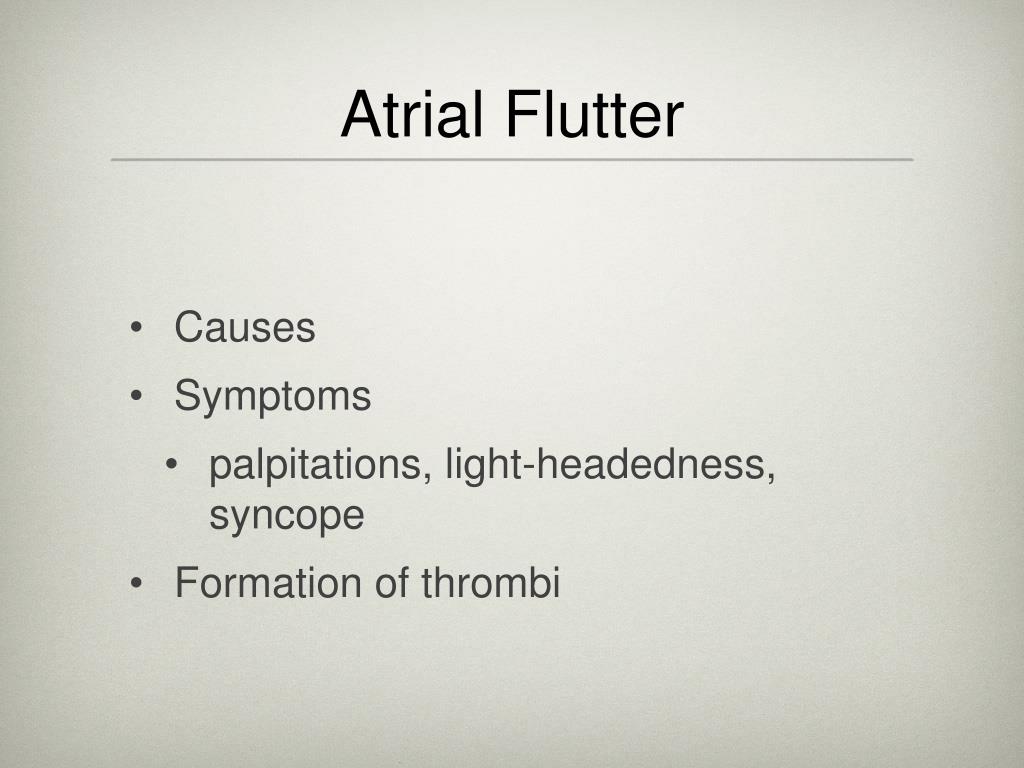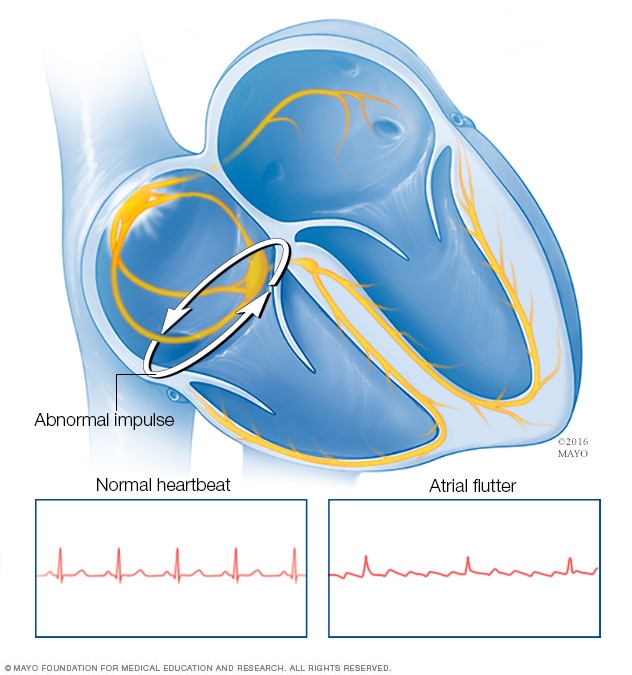


Lifestyle changes: These may include diet, exercise, calming activities and treatment of sleep apnea.We may prescribe one or more treatments, such as: In designing your treatment plan for atrial fibrillation (AFib), we’ll look at how often you have symptoms, the severity of your symptoms, what’s causing your atrial fibrillation (AFib) and if you already have heart disease. Event monitoring records heart rhythms when symptoms occur, usually over about a month.įind out more about our heart and vascular testing and diagnosis.Holter monitoring uses a small, battery-powered EKG that continuously monitors your heart rate and rhythm, usually for 24 to 48 hours.
Atrial flutter causes during pregnancy portable#
Portable monitoring, which includes two main types:.Radiographic imaging such as a chest X-ray to examine the structure of your heart and lungs.Laboratory testing to check your electrolyte levels or thyroid hormone levels to look for a cause of your atrial fibrillation (AFib).We may also order additional tests, such as: Sometimes your doctor may detect atrial fibrillation (AFib) from tests or treatment you received for other conditions.Įither way, to diagnose atrial fibrillation (AFib), your doctor will start with a thorough physical exam and listen to your heart with a stethoscope to check for a heart murmur or other sign of an irregular heartbeat. If this happens, talk with your doctor about your symptoms. You may first notice atrial fibrillation (AFib) as a fluttering sensation in the chest. If you have high blood pressure or thyroid disease, take your prescribed medication.See your primary care provider at least once a year for heart, thyroid and blood pressure checks.Heart health tips to help prevent atrial fibrillation (AFib) This weakening can result in heart failure and other conditions. Heart failure: Atrial fibrillation (AFib) can weaken the lower chambers of your heart.Research shows that up to 20% of strokes are caused by atrial fibrillation (AFib). Blood clots: Atrial fibrillation (AFib) can cause blood clots, which can lead to a stroke, including mini-stroke and silent stroke.If it isn’t treated, atrial fibrillation (AFib) can lead to other health issues. Health conditions, such as obesity or thyroid disease.Heart conditions, such as coronary artery disease or congenital heart disease.Other risk factors for atrial fibrillation (AFib) include: Awakening at night, sweating and feeling anxiousĪtrial fibrillation (AFib) causes & complicationsĪs you age, atrial fibrillation (AFib) can become more common.Heart palpitations, a feeling that your heart is skipping a beat or beating too hard or fast.Fatigue and weakness, especially with physical exertion.You may experience these atrial fibrillation (AFib) symptoms: But when they come back or are severe, it’s a good idea to see your doctor. Many times, atrial fibrillation (AFib) symptoms such as feeling your heart fluttering and other sensations don’t indicate anything serious. This is known as chronic atrial fibrillation (AFib). Sometimes atrial fibrillation (AFib) may only last a short time but comes back over and over. This “storm” causes the chambers of the heart, or atria, to quiver or contract rapidly. It occurs when a storm of electrical impulses spreads through your heart. Knowing what atrial fibrillation (AFib) is will help you identify the symptoms so you can seek medical treatment sooner.Ītrial fibrillation (AFib) is a type of rapid, irregular heartbeat. David Kress, one of our cardiothoracic surgeons. Find out about combined hybrid catheter ablation from Dr. Our specialist teams join together to combine two atrial fibrillation (AFib) treatments into one minimally invasive procedure so you can regain your healthy rhythm and recover more quickly. Carotid artery disease (blocked carotid artery).


 0 kommentar(er)
0 kommentar(er)
